Content Marketing is a Lot More Difficult Than You Think
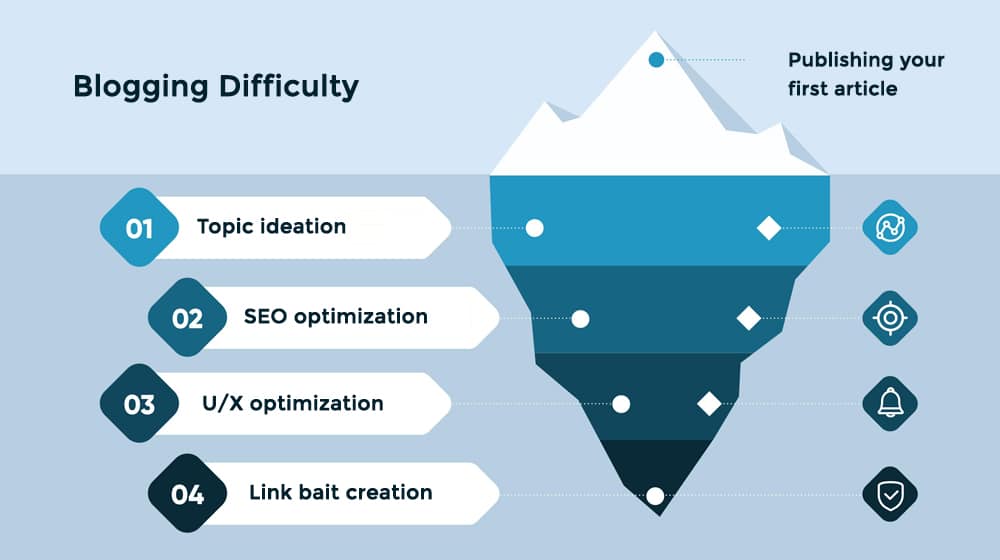
As the owner of a content marketing agency, a large part of my job is spent on sales calls talking to business owners who have heard about this whole "blogging" thing and want to know more. Some of them have tried to blog, but have had no success. Some of them know blogging is "a thing people do" but don't know how to go about it.
A lot of people, however, seem to think that blogging and content marketing are pretty easy. I've had people ask me to do some of the work for them, like doing topic ideation and development, while letting them run off to a content mill for their actual content. I've had people balk at the (quite reasonable) prices that we charge for blog management, because, after all, it's just a blog. There're a billion blogs on the internet. How hard can it really be to properly grow a blog?
Let me tell you, it's quite difficult. Some bloggers just make it look easier than it is.
Look at a professional athlete. Someone who is reasonably fit might feel like they can challenge an athlete, but they're on a whole other level. They make it look easy. You see someone running fast, jumping high, maneuvering quickly, and think sure, I could do that. Then you try it and you realize they aren't just better than you, they're on a completely different level. They make it look easy because all you see is their performance in competition and somebody working at peak efficiency. You don't see the thousands of hours of blood, sweat, and tears behind the scenes.
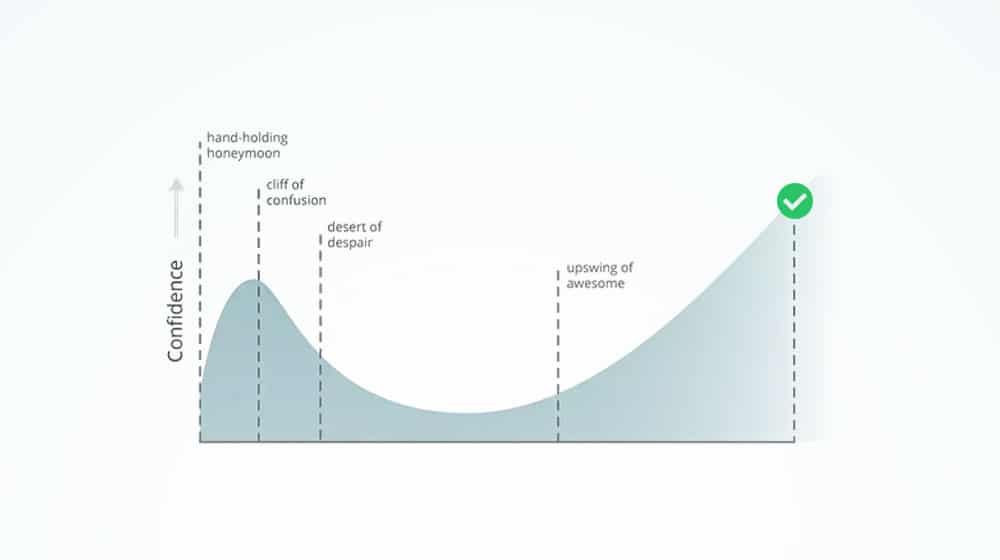
In a way, it's the same with blogging and many other professions for that matter. It's not entirely just about our experience, though; it's about all of the things we do behind the scenes to make blogging work. All you see is the articles, and you think "hey, anyone can write, how hard can it be?"
What Goes Into a Successful Blog
To properly explain what's going on, and enlighten those who are more skeptical about what it is we do, I'm going to give you a rundown of what goes into a successful blog, so you can see all of the effort that we put into running a blog for you.
Blog setup. If you don't have a blog already, one needs to be made for you. That means a lot of design. Setting up WordPress isn't difficult, but a lot goes into it. The blog design needs to be configured to match your existing site design. You need to choose a theme or pay to have one developed for you. You need to design your menus, install all manner of useful plugins, set up analytics, and more. Setting this up correctly can be time-consuming.
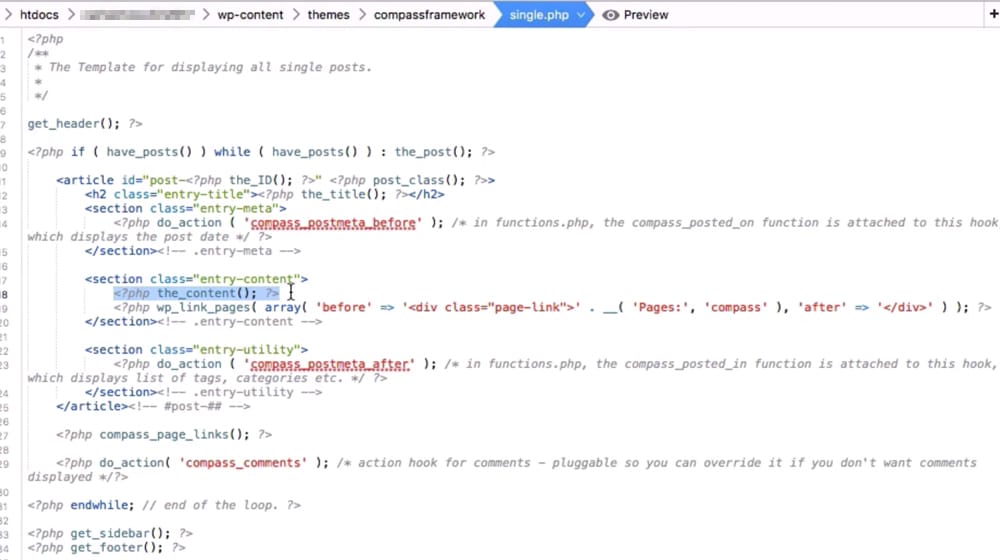
Industry research. You might know a lot about your industry, but do your writers? Often, businesses running low-quality blogs for themselves simply hire writers from content mills. Those writers might do some cursory Google searches, but you're going to get beginner-level interest and awareness of your topic at best. A dedicated content marketing team learns a lot about your industry, so they can write an appropriate level of content. It'd be like opening a blog for a retail outlet and writing posts explaining what shopping is and how to check out using a self-checkout machine.
Competitive research. A good content marketing team builds awareness of who the competition is. Who are the strongest players in your niche? Are you fighting against local brands or national companies?
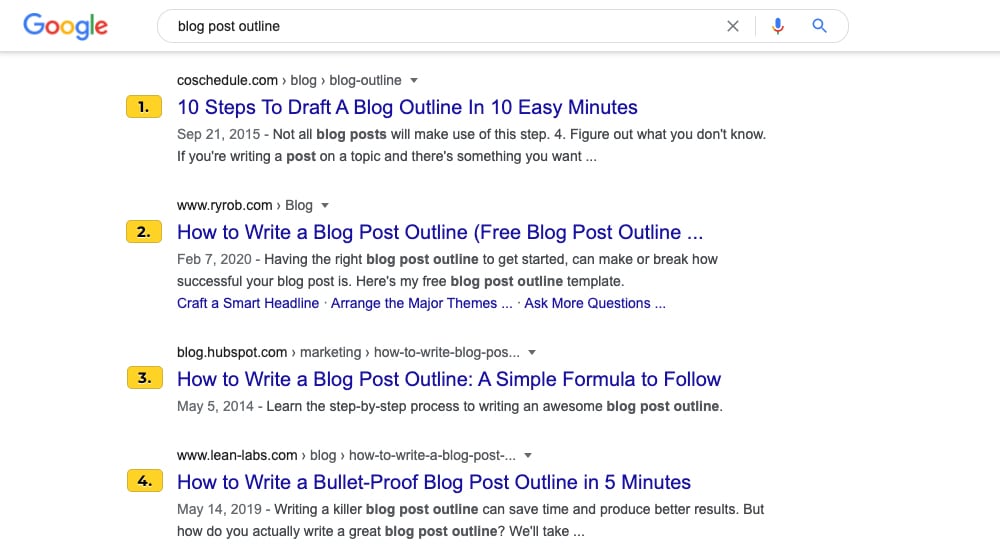
This is useful for three reasons:
- Knowing the competition allows you to directly target them and out-do their content, to position yourself as the stronger authority.
- Knowing the competition allows you to link to non-competitors who are industry authorities.
- Knowing the competition allows you to pick topics and fill in content gaps.
Competition isn't getting any easier. The average word count of a blog post is rising year after year, and more and more companies are starting blogs. The longer you wait, the harder it is to build a reputation, the longer it takes to establish authority, and the more work it is simply to find a place.
Keyword research. Specific keyword usage might not be as important as it once was, due to Google's natural language parsing and voice search capabilities, but it's still important. Looking for specific long-tail keywords to target is a fine line to walk. You need to pick keywords that have reasonable enough competition so that you have a good chance at ranking for that topic, while avoiding keywords that have such low volume that the chances of getting traffic from them are nil.
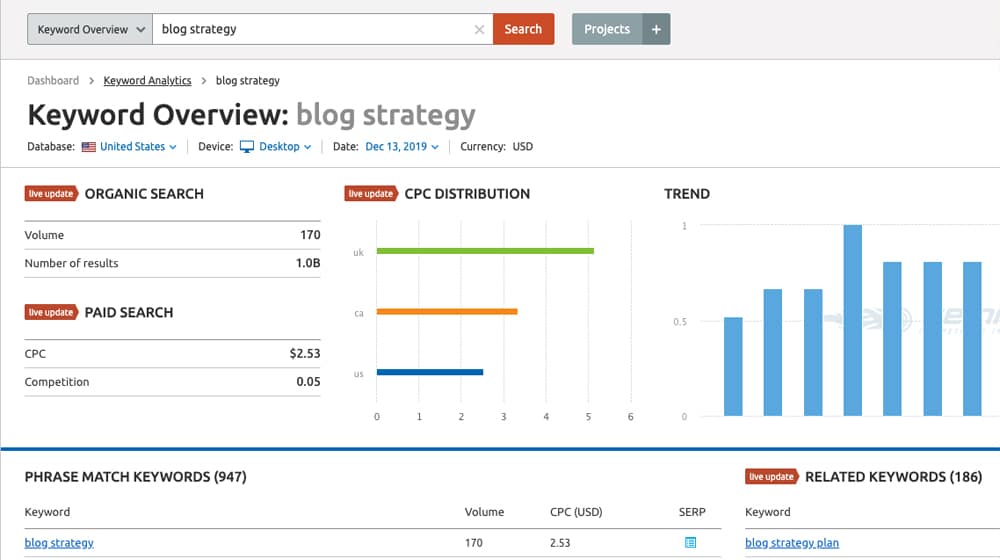
Audience research. Every blog post has a purpose. I say this time and time again: every blog post needs to target specific people with a specific goal in mind. Knowing your audience allows a content marketing team to target specific sub-sections of your audience with specific kinds of content. The messaging you give to people who have never heard of you before is different from the messaging you deliver to your existing customers, but a blog needs to exist in a state of catering to all of these different kinds of people at once.
Every post is a narrow, laser-focused piece of content reaching a specific kind of user who has a specific goal in mind. The blog as a whole is like a disco ball, with every beam of light reflecting at a different group of people with a different goal in mind, yet the whole thing covers the whole room in dazzling lights.
Topic ideation. Taking a keyword and turning it into a topic is surprisingly difficult. One keyword can have many different purposes and intents behind it. Is the person using that keyword to search looking for basic information, detailed information, actionable help, a place to buy? Learning the intent behind keyword searches, and developing topic ideas out of that intent, is a skill that takes a long time and a lot of experience to develop.
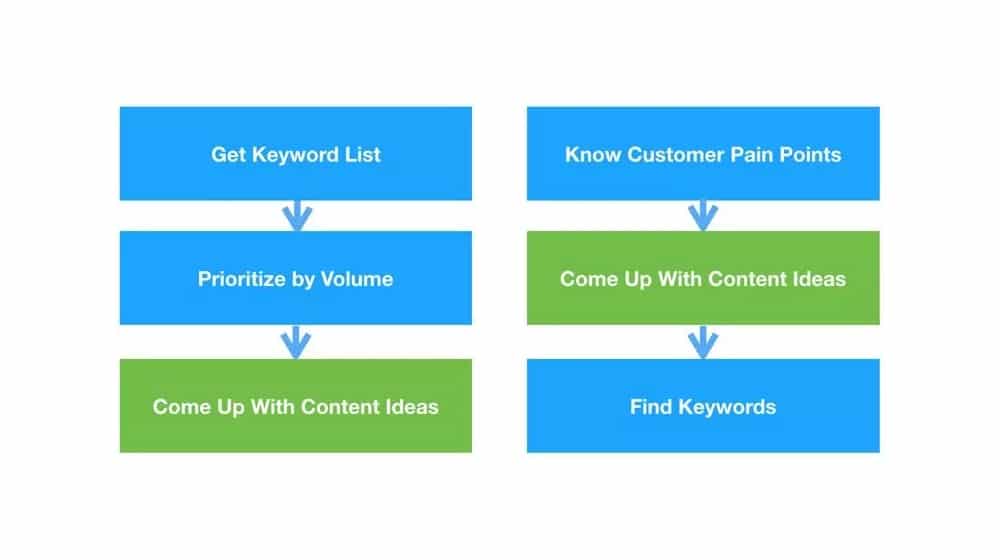
Headline development. It's difficult enough turning a keyword into a topic, but then you need to develop a compelling headline for that topic. A headline is one of the most important parts of a blog post; it's what appears in Google search, and it's what convinces a user to click on your result over the snippet of your competition. This often involves brainstorming multiple headlines, and even testing multiple variations until you find the most compelling one.
Content writing. Writing isn't easy. A lot goes into creating a compelling blog post. How do you strike the right balance of formality and casual writing? What tone, perspective, and voice do you use? If you have multiple writers on the job, how do you match them to your overall style? Web writing is an art form, and it's a mostly invisible one.
Content formatting. Web writing requires a specific kind of formatting to make it attractive, easy to read, and compelling. Knowing when and how to use elements like bulleted lists, subheadings, and text formatting is a skill you develop over time, with experience.
Graphic design. You didn't think blog post images come out of the ether, did you? Sure, you can just pick some vaguely-relevant images from a stock photo site, but that's both boring and it wastes the opportunity to be found via Google image search. A talented graphic designer can kick a basic blog post into a seriously compelling piece of media, and that's not even considering other forms of content creation, like infographics.

We create blog content that converts - not just for ourselves, but for our clients, too.
We pick blog topics like hedge funds pick stocks. Then, we create articles that are 10x better to earn the top spot.
Content marketing has two ingredients - content and marketing. We've earned our black belts in both.
Technical SEO. All of the little things that go into a successful blog post need to be attended to as well. You have your SEO metadata, like your headline, your URL, your meta description, and your rich data markup. You also have on-page details, like interlinking, out-linking, link anchor text, and keyword usage. People spend years learning enough about SEO to do this properly.
Post timing. When is your audience searching for content? When is the best time to post new content, both on your blog and on social media feeds? The timing might not seem like a huge matter when blogs are meant to last for years and gather strength over time, but it's still the difference between an underwhelming post and a surge of viral traffic.
Fixing Existing Blogs
Then you have all of the things we do for blogs that already exist. Everything up above is just what happens when we take over. If you don't have a blog already, we can establish one from scratch, and that's fine. If you already have one, though, there's additional work that needs to go into it. That old blog might be fine, but it might also be an anchor, dragging down your site and making future blogging efforts that much harder to get to work.
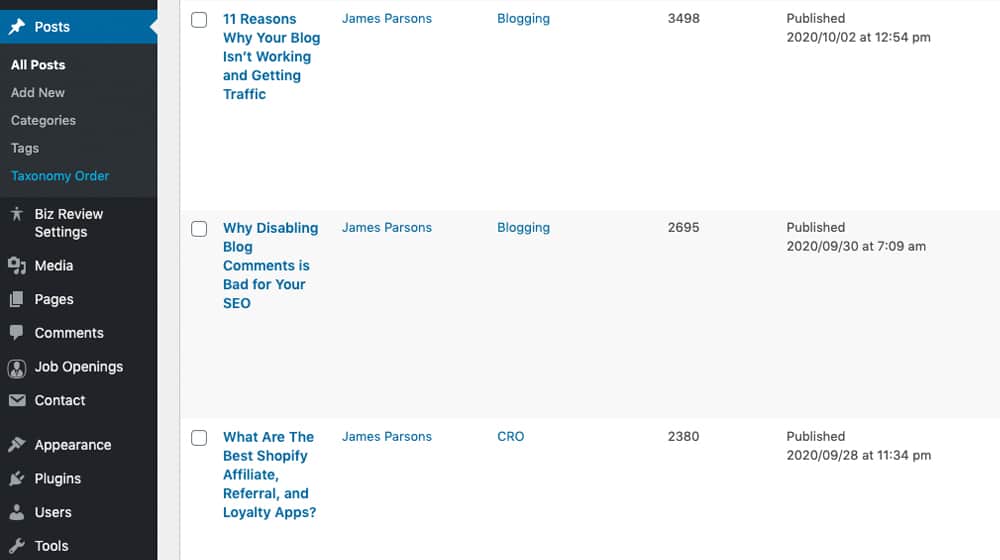
Content auditing. Going over your existing content is very important. Look for content length, keyword target, writing quality, link usage, metadata, everything listed up above. Figure out if the old content is fine, if it's worth buffing up and improving, or if it needs to be purged to get the site on track. More than once, I've had a new client purge 90% of their existing blog to fix thin content and duplicate content penalties. It hurts, sure, but so does being a blog with a bunch of old stolen content on it.
Old content improvement. Old content can be rewritten and improved. Just because you published it doesn't mean it's set in stone, after all. Going back through your old content and improving it up to modern standards helps keep evergreen content evergreen, and it can help you out-do the more recent competition.
Link auditing. How many of the links you've included in old posts still work? Do they point to the same posts, are they still relevant? Is the target site dead? Auditing links in old content helps avoid SEO penalties, allows you to find opportunities to cross-link to new content, and helps revitalize old posts.
Audience engagement. When a user comments on your posts, do you comment back? We do. Engaging with your audience is a huge boon. Not only does it keep readers feeling like they're part of the community, but it also keeps them coming back. On top of that, high-quality blog comments add to your overall post content and are a tangible benefit to SEO.
Content updates. Just like going back to refresh old content is important, keeping new content up to date is also important. Serious content marketers don't just publish posts and let them sit, we constantly tweak and improve them based on changes in the industry, new information, user feedback, and analytics data.
Promoting and Growing a Blog
On top of all of that, there's also promotion to consider. A blog doesn't go out and find people. You need to find people to put it in front of. Audience research is just part of that. You also need to manage things like:

Paid advertising. I don't run many paid ads to promote content, but the biggest content marketing agencies often offer advertising packages as well. Whether you do it yourself or you pay your agency to do it, running paid ads on Google, Facebook, Twitter, and other platforms is a great way to get more eyes on your content. It builds awareness and traffic and helps convert casual readers into dedicated readers.
Social media promotion. Do you have social media profiles? Do you update them? Do you post your content to them – with appropriately-written posts – and respond to user comments on them? Social media is still one of the marketer's best tools, even if your reach and engagement are dropping every year.
Guest posting. Reaching out to third parties to line up guest posting opportunities is a huge part of link building, networking, and blogging success. Content marketers do this; do you?
Creative link building. Things like broken link building involve reaching out to webmasters with broken links to let them know about it, and offering your link as a better link that they can swap it out with. Link swaps involve linking to a website in exchange for a link back, which can be risky in excess but valuable with large authoritative blogs. Expert roundups help you get a bunch of free content from industry leaders, and tend to attract links and shares naturally. There are dozens of creative strategies like this to attract links naturally.
Ready, Aim, Fire
I love analogies and metaphors. So, here's one: think of blogging like shooting. If you want to shoot, you don't just pick up the nearest bow and start firing arrows into the air. No, you do your research. You decide what kind of shooting you want to do: targets, hunting, in-range shooting. You pick the right kind of bow and arrows for the job. You don't take your bow into the wrong kind of range, and you don't try to hit the wrong kind of targets.

Moreover, you can treat your blog like a loaded bow and arrow. Each blog post is a shot you take. If you're hunting deer, do you go out into the woods and just start firing into the trees, hoping you hit something? No, you do your research. You figure out where the deer like to go, you find the times they're active, and when you see one, you take careful aim and fire off a single arrow. Ready, aim, fire.
Too many businesses take a scattershot approach to blogging, and forget the "Ready" and "Aim" bit. They don't write with an awareness of their targets. They don't produce content with an eye for what's already out there. They just write about whatever comes to mind, and they wonder why their blog isn't working.
I'll tell you why these blog posts aren't working:
- The content you've written are worse than the content that is already out there.
- You're targeting topics with that only have 100 annual searches.
- Your targeting topics that have millions of annual searches and are already covered in detail on massive websites.
- You're writing too much about your own products.
- Your topic is being hijacked by news topics or Google's trending algorithm.
- You're not solving any problems or answering anybody's questions.
There are many other reasons, and most of these can be avoided with some careful planning, strategy, and research.
Invisible Effort
The true power of content marketing is all of the work that goes on behind the scenes. 90% of what I've mentioned up above is invisible to the average reader. You don't see the work we put into developing topic ideas. You don't see us analyzing our competition, seeing what they wrote, and dissecting every piece of their articles. You don't see how much time we put into keeping up with Google algorithm updates and SEO best practices. You don't see the expense of high-end tools we use. All you see is the blog posts we produce.
And here's the thing: when a blog post is bad, you notice it. When the article doesn't address the topic, or when the language is poorly written, or when it's obvious the writer has no idea what they're talking about, you can tell. The opposite? That's not true. When a blog post is well-written, you don't think "wow, that's well-written!" You just accept it and move on. It's all invisible.
That, my friends, is content marketing. That's why so many businesses fail with their initial efforts. That's why you pay people like me to do it well.
Sure, it's not impossible to do it yourself. Everyone had to start somewhere, and my first websites didn't have great blogs either. It takes time to learn everything involved in blogging. Many businesses start off with bad blogs, but they learn, they change, they grow, and eventually, they start making those shots. You can too - if you're willing to put in the time and effort to do it. For the rest of you, who want faster results, you can pay for the expertise.






May 21, 2021 at 4:11 am
Goodness! I never thought that putting up and maintaining a blog is a huge responsibility.
May 26, 2021 at 6:02 pm
Hey Elise!
It is, it’s something I try to communicate to prospective clients every day.
Some companies will sell you an article, but they don’t sell you the formatting, uploading, SEO, graphic design, topic ideation, analysis, rank tracking, or anything else that is required. That means if somebody isn’t doing those things, they simply aren’t getting done.
It’s a ton of work. If it was easy, everybody would be doing it!
March 14, 2022 at 9:12 pm
Oh wow, I didn't know there was so much more to content marketing. The iceberg visual is really appropriate.
March 15, 2022 at 6:45 pm
Thanks, Janus! Cheers